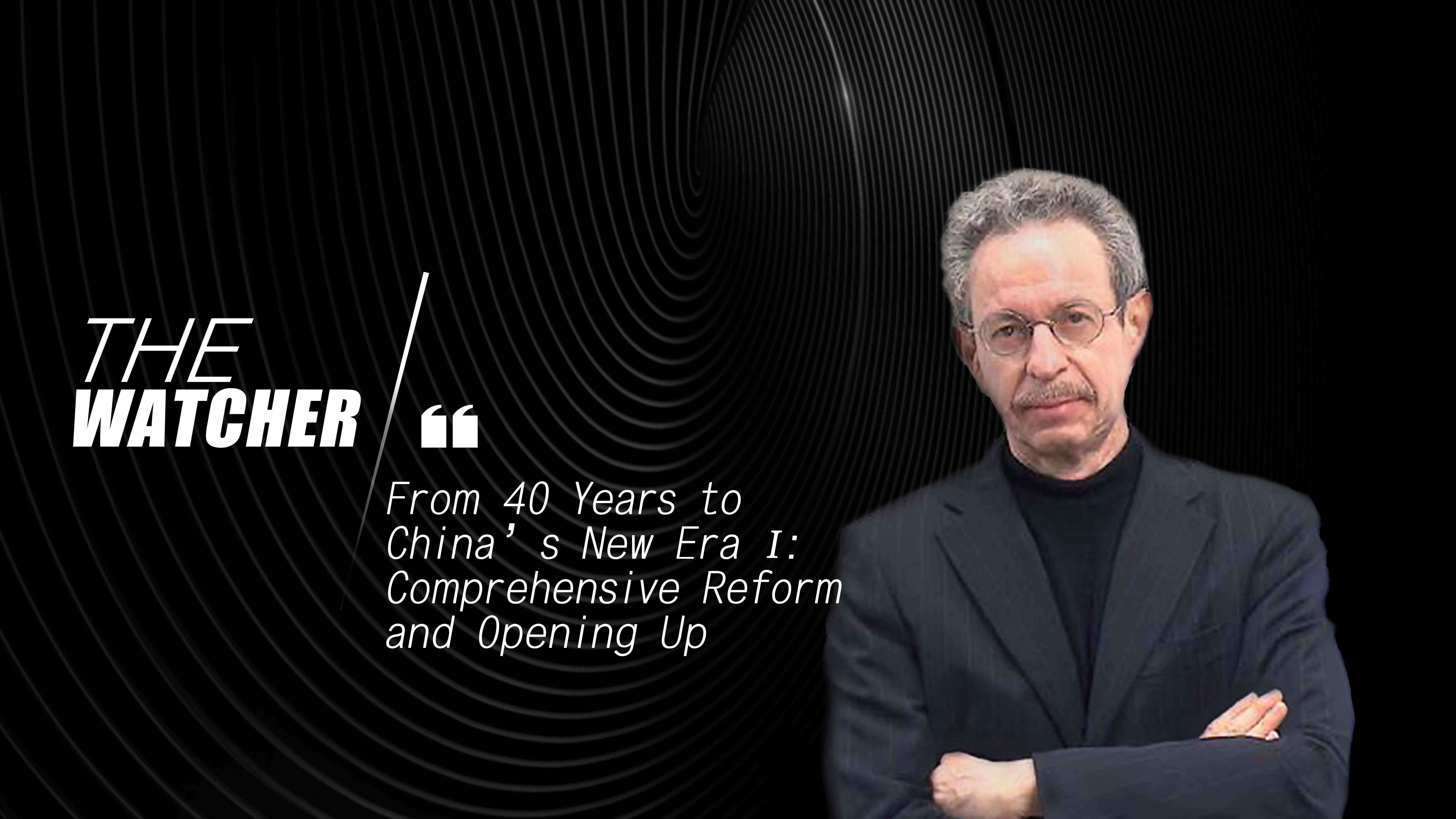
Opinions
17:13, 08-Nov-2018
From 40 Years to China’s New Era I: Comprehensive Reform and Opening Up
Updated
16:36, 11-Nov-2018
By Robert L. Kuhn
03:23

I'm Robert Lawrence Kuhn and here's what I'm watching: In this 40th anniversary year of China's reform and opening up, Chinese President Xi Jinping calls for comprehensively deepening reform and furthering opening up.
Why after four decades are “deepening” and “furthering” still needed? What lessons were learned? What challenges lie ahead? Forty years ago, in December 1978, then Paramount Leader Deng Xiaoping delivered his historic speech — "Emancipate the mind, seek truth from facts, and unite as one to face the future" — thereby setting into motion the four astonishing decades of reform and opening up that transformed China into the world's second-largest economy.
In 1977, 28 years after the founding of the People's Republic of China, the country's annual per capita GDP was about 185 US dollars. In 2018, China's annual per capita GDP is almost 9000 US dollars, an increase of almost 50 times.
While China's development is rightly called an economic miracle, it is not mysterious — reform and opening up made it happen. Economic reform, of course, enabled the fraught, complex transformation of a planned economy into a market economy — but China could not have been as successful without concomitant governance and social reforms.
When historians of the future write the long history of China, these 40 years of reform and opening up will surely be a highlight. Indeed, when historians of the future write the long history of the entire world, China's period of reform and opening up will be a feature.
There are contemporary challenges, of course, and they are serious: slowing growth, mounting debt, financial risk, industrial overcapacity, massive pollution, social disparity, poverty amidst wealth, global volatility.
How to address such diverse, complex issues? President Xi calls for comprehensively deepening reform and further opening up. How to navigate the “deep waters” of reform — overcome entrenched interest groups, optimize government power, balance innovation with social controls, stay ahead of rising expectations?
Lessons can be learned from experiences, stressing thought liberation and practical actions, not empty talk. It is for more than history that we should explore China's remarkable 40 years.
But the period wasn't perfect and progress wasn't linear, and so if the 40 years are too-quickly sanitized and too-totally idealized, China will miss opportunities to learn vital lessons needed for current, new-era challenges.
China should analyze the past to guide the future. Soberly — if not publicly. Start with this: What is it about China's conditions that, even after four decades, the country still needs to reform and open up?
I'm keeping watch. I'm Robert Lawrence Kuhn.
(If you want to contribute and have specific expertise, contact us at opinions@cgtn.com.)

SITEMAP
Copyright © 2018 CGTN. Beijing ICP prepared NO.16065310-3
Copyright © 2018 CGTN. Beijing ICP prepared NO.16065310-3